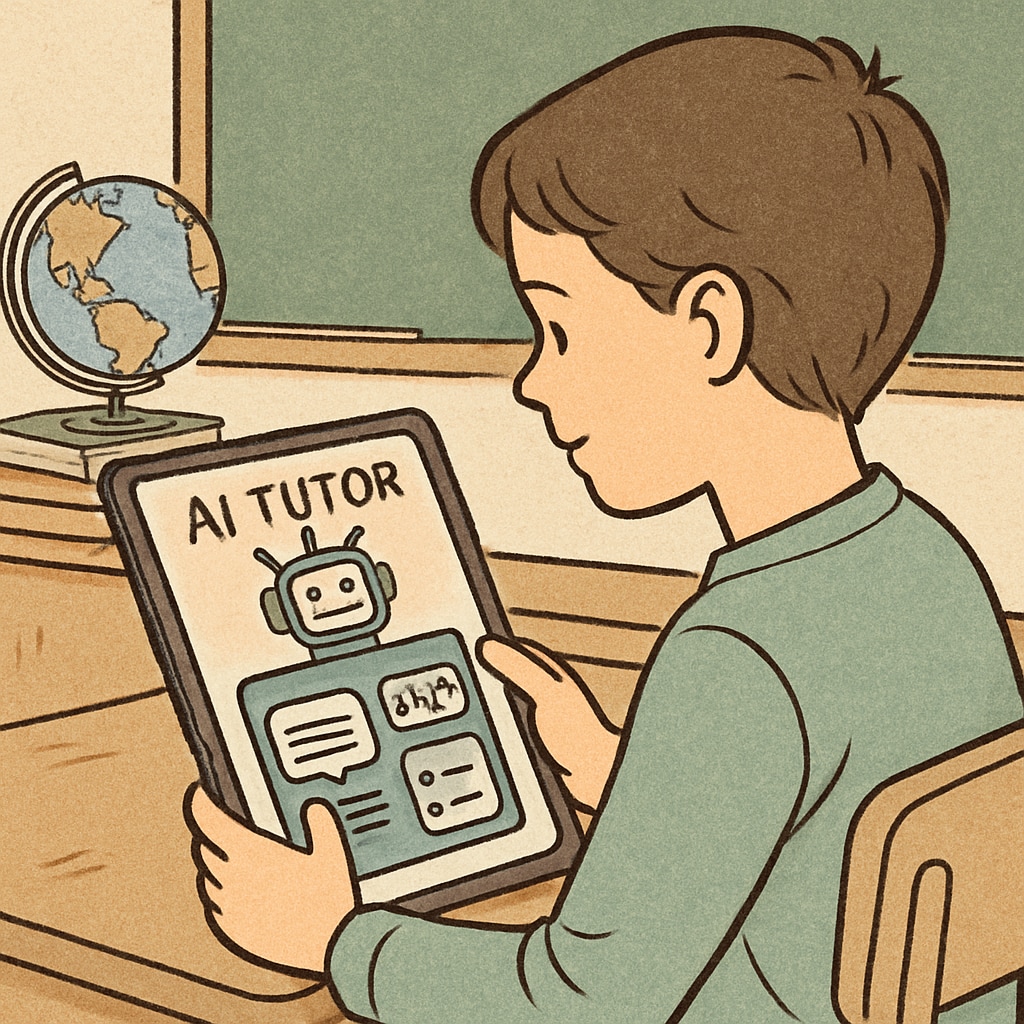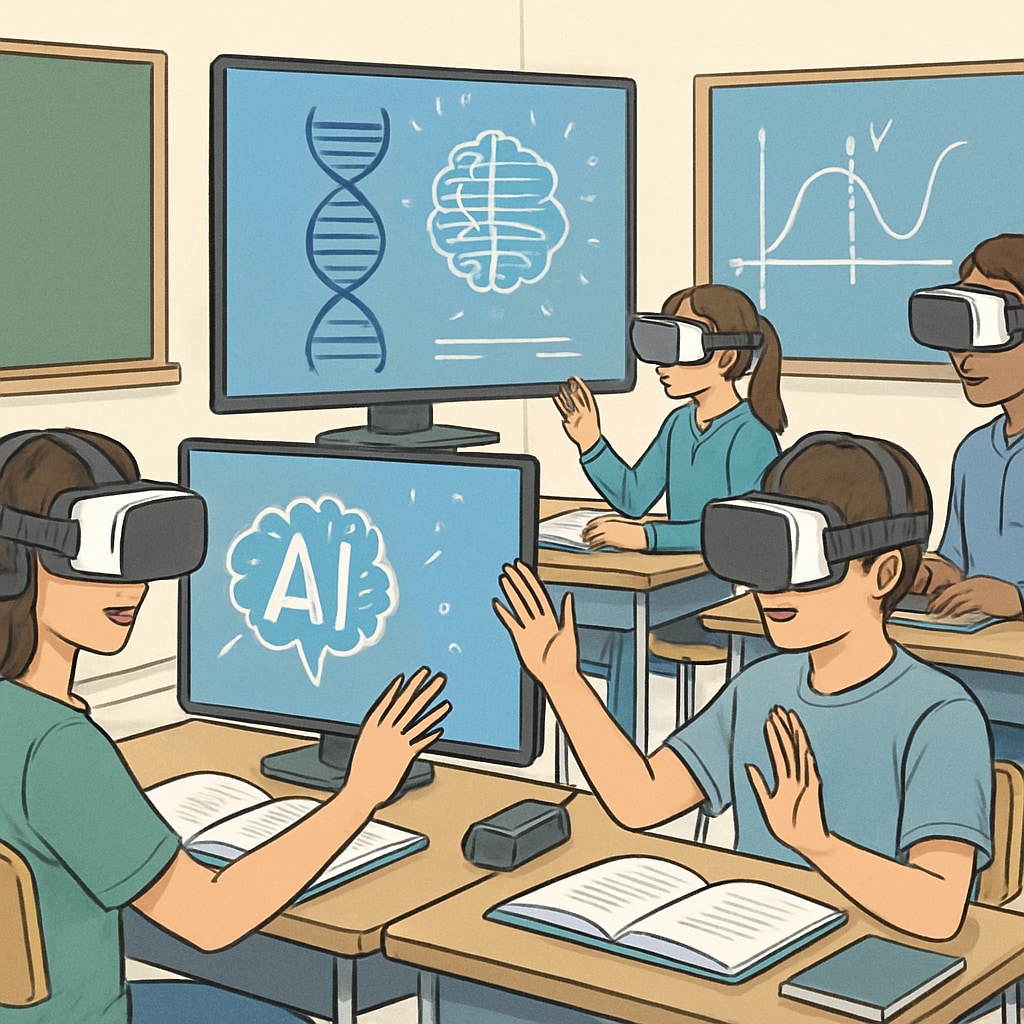Artificial intelligence (AI) is rapidly transforming the education sector, presenting exciting opportunities for K12 students, educators, and institutions alike. As we consider the intersection of AI education, future trends, and the 2030 education landscape, it becomes evident that this technological revolution is driving unprecedented levels of personalization, adaptability, and global access to education. By 2030, AI is poised to fundamentally reshape traditional educational paradigms, enabling innovative solutions to worldwide challenges such as resource inequality, skill development, and workforce readiness.
Personalized Learning: Tailored Education for Every Student
One of the most significant impacts of AI on education is its ability to deliver personalized learning experiences. By leveraging advanced algorithms, AI systems can analyze student performance data and adapt content to meet individual needs. For example, platforms like Duolingo use machine learning to adjust language lessons to a student’s proficiency level, ensuring an optimal learning pace.
Furthermore, AI-powered tools such as intelligent tutoring systems (ITS) provide real-time feedback, identifying areas where students struggle and offering tailored recommendations. This level of customization fosters deeper engagement and improves learning outcomes by addressing diverse learning styles and abilities.

Adaptive Education: Preparing for a Dynamic Workforce
In addition to personalization, AI introduces adaptive learning models that prepare students for the evolving demands of the global workforce. Industries are shifting towards automation, requiring skills such as critical thinking, problem-solving, and digital literacy. AI can simulate real-world scenarios, enabling students to engage in project-based learning and practical problem-solving exercises.
For example, AI-driven virtual reality (VR) environments allow students to explore complex subjects like biology or engineering in immersive, hands-on settings. This experiential approach not only enhances understanding but also helps students develop transferable skills for future careers.
Moreover, AI systems can analyze labor market trends and recommend courses or career paths aligned with emerging opportunities. Such insights ensure that education remains relevant and responsive to economic shifts.

Globalized Learning: Bridging Educational Gaps
Another transformative aspect of AI in education is its potential to bridge global learning gaps. AI-powered platforms such as Coursera and Khan Academy have already democratized access to high-quality education by offering free or affordable courses to learners worldwide. By 2030, the integration of AI in education is expected to further reduce barriers related to geography, language, and socioeconomic status.
For instance, real-time translation tools powered by AI can facilitate multilingual virtual classrooms, enabling students from different countries to collaborate seamlessly. Additionally, AI can identify underserved regions and optimize resources, ensuring equitable access to quality education for marginalized communities.
As a result, education will become a truly global endeavor, fostering cultural exchange and preparing students to thrive in an interconnected world.
The Road Ahead: Challenges and Ethical Considerations
While the benefits of AI in education are undeniable, its widespread adoption also raises important challenges and ethical questions. Issues such as data privacy, algorithmic bias, and the digital divide must be addressed to ensure that AI-driven education is fair and inclusive.
For example, AI systems rely on vast amounts of student data to function effectively. Safeguarding this data against misuse and breaches is critical to maintaining trust in AI technologies. Additionally, efforts must be made to ensure that AI algorithms do not perpetuate existing inequalities or biases in education systems.
Finally, bridging the digital divide is essential to ensure that all students, regardless of their socioeconomic background, can benefit from AI-driven learning solutions. Investments in infrastructure, teacher training, and affordable access to technology will be key to overcoming these challenges.
Conclusion: Looking ahead to 2030, AI promises to revolutionize K12 education by enabling personalized, adaptive, and globalized learning experiences. While challenges remain, the potential benefits of AI-driven education far outweigh the risks, offering a blueprint for a more inclusive and innovative future. As educators, policymakers, and technologists collaborate to harness the power of AI, the dream of equitable and transformative education for all students is within reach.
Readability guidance: To enhance readability, this article uses short paragraphs, clear subheadings, and concise lists to summarize key points. Transitions such as “for example,” “in addition,” and “as a result” facilitate the flow of ideas, while technical terms are explained in simple language.


